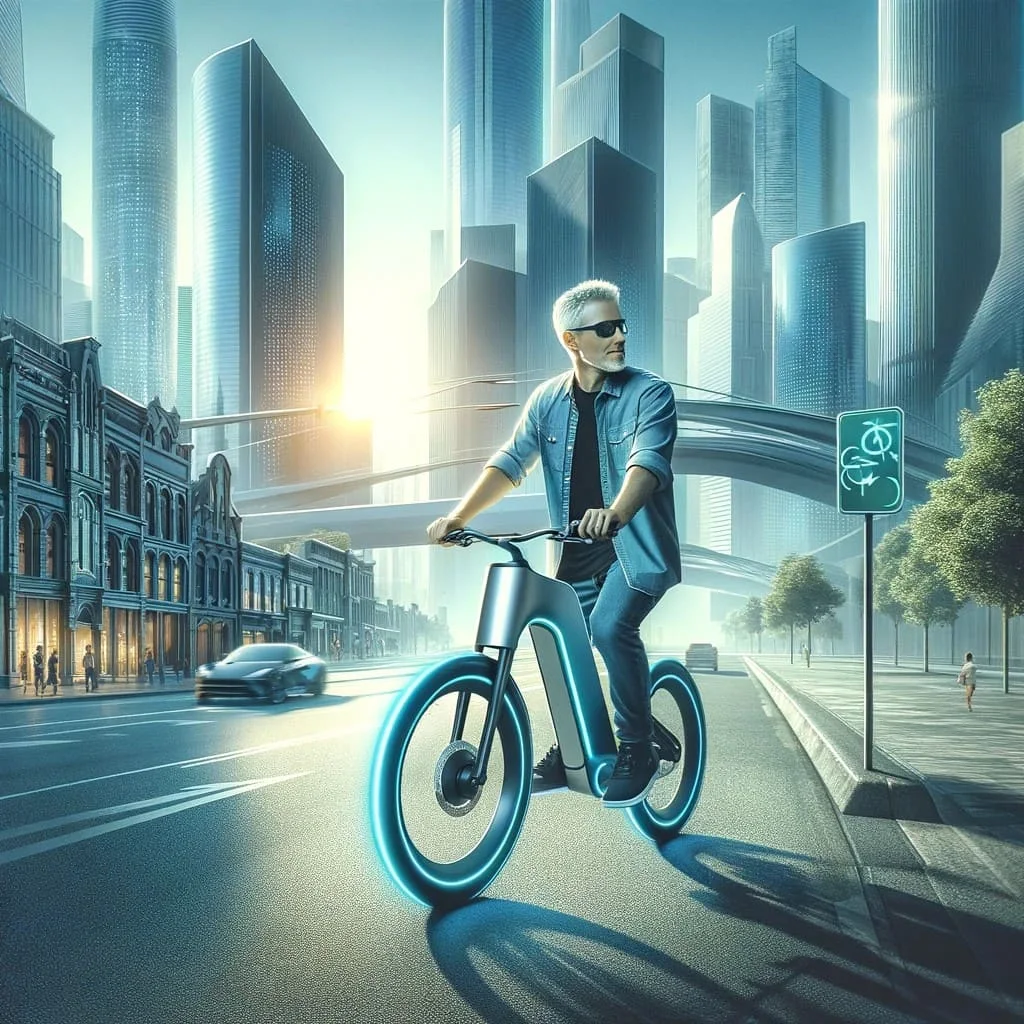In the evolving world of personal transportation, electric bikes (e-bikes) have emerged as a popular, eco-friendly alternative to traditional vehicles. As they gain popularity, questions regarding their legal classification and the requirements for operating them become more pertinent. Among these is the query: Do you need a motorcycle license to ride an electric bike?
Understanding Electric Bikes
First, it's crucial to understand what an e-bike is. Electric bikes are essentially bicycles equipped with an electric motor that assists with pedaling. They come in various shapes and sizes, but most share a common design that closely resembles a traditional bicycle.
Classification of E-Bikes
The classification of e-bikes varies from region to region. In many places, e-bikes are categorized based on their maximum speed and the power of their electric motor. For instance, in the European Union, e-bikes that have a motor output of no more than 250 watts and can't assist when the bike is traveling more than 25 km/h are considered regular bicycles. In the United States, the Consumer Product Safety Act defines an "electric bicycle" as having a motor less than 750 watts (1 hp), with a maximum speed (on a paved level surface) of less than 20 mph.
Licensing Requirements
Given these definitions, in most jurisdictions, electric bikes that fall within these parameters do not require a motorcycle license. They are often treated the same as traditional bicycles, meaning you can ride them on bike paths, streets, and anywhere else bicycles are allowed without needing a motorcycle license.
However, the situation changes if the e-bike is more powerful and capable of speeds exceeding the specified limits. In some areas, high-powered e-bikes that can travel faster than the set limits are classified similarly to mopeds or small motorcycles. In such cases, you may need a motorcycle or a specific type of license to operate them legally. This often involves passing a written and practical driving test, similar to what is required for a traditional motorcycle license.
Safety and Legal Compliance
Regardless of whether a motorcycle license is required, e-bike riders should prioritize safety and legal compliance. This includes understanding and adhering to local traffic laws, wearing helmets, and using the bike's features responsibly.
Regional Variations
It's important to note that regulations can vary widely. For example, in some cities or states, even low-powered e-bikes might require registration, insurance, or a minimum rider age. It's crucial for potential e-bike owners to check the specific laws in their area before purchasing or riding an e-bike.
Conclusion
In summary, whether you need a motorcycle license for an electric bike depends on the bike's power and speed capabilities, as well as local laws. Most standard e-bikes, designed for casual use with limited speed, do not require a motorcycle license. However, for more powerful models that blur the line between an e-bike and a motorized vehicle, additional licensing might be necessary. Always check your local regulations to ensure compliance and safe riding.
E-bikes represent a shift towards more sustainable and accessible modes of transportation. As they become more integrated into our daily lives, understanding and adhering to the relevant laws will ensure their benefits are maximized for all road users.
FAQ: Do You Need a Motorcycle License for an Electric Bike?
1. What is an Electric Bike (E-Bike)?
An electric bike, or e-bike, is a bicycle that includes an electric motor to assist with pedaling. They are designed to reduce the physical strain of cycling and can vary in motor power and battery capacity.
2. How are E-Bikes Classified?
The classification of e-bikes varies by region. Generally, they are categorized based on their motor power and maximum assisted speed. For example, in the EU, e-bikes with a motor power up to 250 watts and a speed limit of 25 km/h are treated as regular bicycles.
3. Do I Need a Motorcycle License for a Standard E-Bike?
Typically, no. Standard e-bikes, which comply with regional speed and power limits, usually do not require a motorcycle license. They are often regarded in the same way as traditional bicycles.
4. When Might an E-Bike Require a Motorcycle License?
If an e-bike exceeds certain power and speed thresholds (for instance, more than 750 watts motor power in the U.S.), it might be classified similarly to a moped or motorcycle. In such cases, a motorcycle license, registration, and insurance might be required.
5. Are There Age Restrictions for Riding an E-Bike?
Yes, age restrictions can apply, and they vary by region. Typically, a minimum age requirement is set for riding higher-powered e-bikes.
6. Do E-Bike Riders Need to Follow Specific Traffic Laws?
Yes. E-bike riders should adhere to the same traffic laws as traditional cyclists. This includes following traffic signals, using bike lanes where available, and wearing helmets where mandated.
7. Are Helmets Required for E-Bike Riders?
Helmet requirements depend on local laws. Some regions mandate helmets for all cyclists, while others may have specific rules for e-bike riders, especially for higher-powered models.
8. Do I Need Insurance for My E-Bike?
This depends on the e-bike’s classification. For standard e-bikes, insurance is typically not mandatory. However, for e-bikes classified similarly to motor vehicles, insurance may be required.
9. Can I Ride an E-Bike on Bike Paths?
Yes, standard e-bikes are usually allowed on bike paths. However, for faster, more powerful e-bikes, there might be restrictions. Always check local regulations.
10. Where Can I Find Specific Regulations for E-Bikes in My Area?
Local transportation or motor vehicle departments are the best sources for this information. Their websites often have detailed guidelines about e-bike classifications and requirements.


